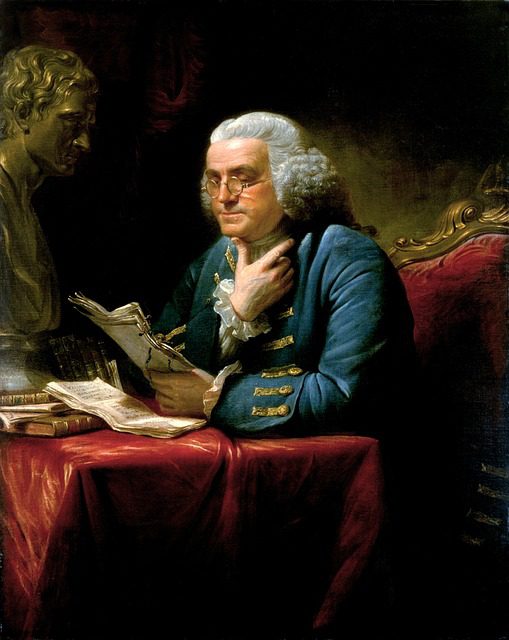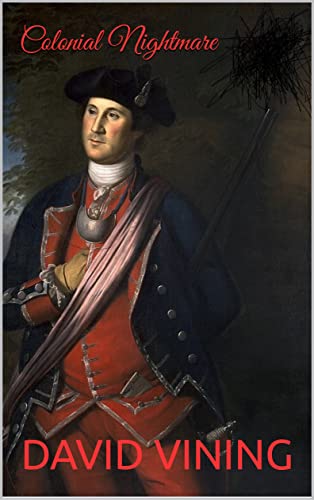
Far back in my distant past, when public schools still used to teach American history, I have a vague recollection of being taught by my teachers that Benjamin Franklin and John Adams were sent to France to enlist their aid in supporting the American Revolution. About all I can remember from the brief instruction I was given, is that France and Spain were reluctant to give such aid until the Americans could prove they could stand up to the British military. Once General Washington provided a few victories, the European powers finally jumped on board.
And while that lesson I received was not entirely wrong, Stacy Schiff’s ‘A Great Improvisation’ (A Great Improvisation: Franklin, France, and the Birth of America a book by Stacy Schiff (bookshop.org) lets us know that there was more to the story than we were taught. A great deal more, as a matter of fact.
Culture shock
To start out, NONE of the ambassadors sent by the fledging United States could speak French, including Benjamin Franklin. Franklin could read and somewhat write in French, which was more than his fellow ambassadors could manage.
Worse still, the cultures of France and the United States were diametrically worlds apart. American culture, especially back in the late 18th century, placed being industrious and thrifty on a pedestal. The French aristocracy, on the other hand, took great pride in being perceived at doing nothing at all. (They actually did work but tried their best to be discrete about it). In fact, Franklin was bemused to discover that there was no word for industry in the French language at that time. To say that the American emissaries were confused and appalled would be an understatement.
The French viewed the American diplomats who hailed from the New England states as having sticks perpetually sh0ved up their asses. Meanwhile, the emissaries from the Southern colonies, which tended to more class conscious, felt that since they represented a sort of American aristocracy, they might be able to better bridge the divide. They were greatly mistaken. The French viewed ALL Americans, regardless of status, title or education, as provincial hayseeds.
With one exception.
The other indispensable man

George Washington is often referred to as “the indispensable man” for his leadership during and after the Revolutionary War. Many European leaders were sure he would eventually declare himself dictator. A lesser man might of, and thus the great American experiment would have been strangled in its crib. Washington, for all his lack of formal education, a man of the Enlightenment.
But there was another indispensable American man: Benjamin Franklin. For a guy who only had 4 years of grammar school, he left as much a mark on the new nation as General Washington did. Benjamin was a self-taught scholar, print shop owner, writer, founder of the University of Pennsylvania, founder of the first Philadelphia hospital, founder of the first Philadelphia fire department, creator of the first subscriber library in North America, scientist, and a member of the committee to write the Declaration of Independence. Heck, he even had some military experience. He directed the building of a frontier fort and commanded it for a short time during the French and Indian war. His life was an incredible adventure; a man of both action and the mind.
And he was the only American that the French, both aristocracy and commoner, had any respect for. When he arrived in France as official envoy for the newly founded nation, his presence electrified that country in a way that defies description. Think of the reception the Beatles, Winston Churchill, and Einstein received in the US, but all directed at one man.
And he was the right man in the right place at the right time. Straightforward, but not severe, he managed to beg, borrow and plead with the French monarchy to support the struggling colonists. No other man in America had the gravitas to pull off such a feat. Ironically, many of his own countrymen greatly distrusted him. They weren’t sure how committed he was to independence from England in the first place. Did he really want to break from the Empire? Conversely, others were suspicious of his cozying up to the French court. Was he was preparing to sell out America by trading an English king for a French one?
A Great Improvisation:
I really enjoyed Ms. Schiff’s ‘A Great Improvisation‘ and would recommend it to anybody interested in Benjamin Franklin and the American Revolution. This book reads more like a novel than a dry history tome, and I certainly learned a helluva lot more about America’s efforts to secure European help in their Revolution than I ever did in school.
That being said, I think this book is more suitable for history buffs as opposed to a casual reader. There are no epic battle or grand strategies here. Instead, Ms. Schiff goes into great detail about the palace intrigues. We learn all about the oversized egos, the backstabbing, the double-dealing, the petty jealousies and self-serving justifications, and worse, ugly glimpses of authoritarian impulses. And that was just from the American envoys! The French court was even more fraught with peril.
Fortunately, to make following the convoluted plot easier, there is a list of names and brief bios of the men and women who played a crucial role in being mid-wives to a new nation included. I will not be shamed by admitted that I had to refer to this list quite often.
Interlude:

Miscellaneous:

Speaking of colonists and the American Revolution, there’s a new book out by David Vining called ‘Colonial Nightmare’. I haven’t read it yet, but I’m intrigued. The book is set in North America during the French and Indian War. A young George Washington is an officer sent to a French fort to deliver a message from the colonial Governer of Virginia in an attempt to prevent a war. This event is actually happened.
Only in David Vining’s telling, George Washington crosses paths with some sort of supernatural evil in the untamed forests of the Ohio River Valley. Something monstrous that has come over from the Old World and made the New World its home. Something so terrible that Washington refused to ever speak of it.
I have never read anything by Mr. Vining, but I’ll let you know if it is any good. Colonial Nightmare: Vining, David: Amazon.com
____________________________________________
If you are like me and enjoy a bit of armchair traveling, have I got a website for you! Haus Publishing (Travel Writing – Haus Publishing), a London based book publisher, has an interesting selection of sub-categories. I’m here to talk about their ‘Travel Writing’ section. A collection of vintage and current writing, with titles you might not have heard about, but all look pretty interesting. As the publisher is based in England, if you choose to purchase directly from them you may have to pay extra taxes and custom duties. Otherwise, you can find many of the books on Amazon or Barnes & Noble.
That’s it for now. What books are you enjoying during the dark days of winter?


